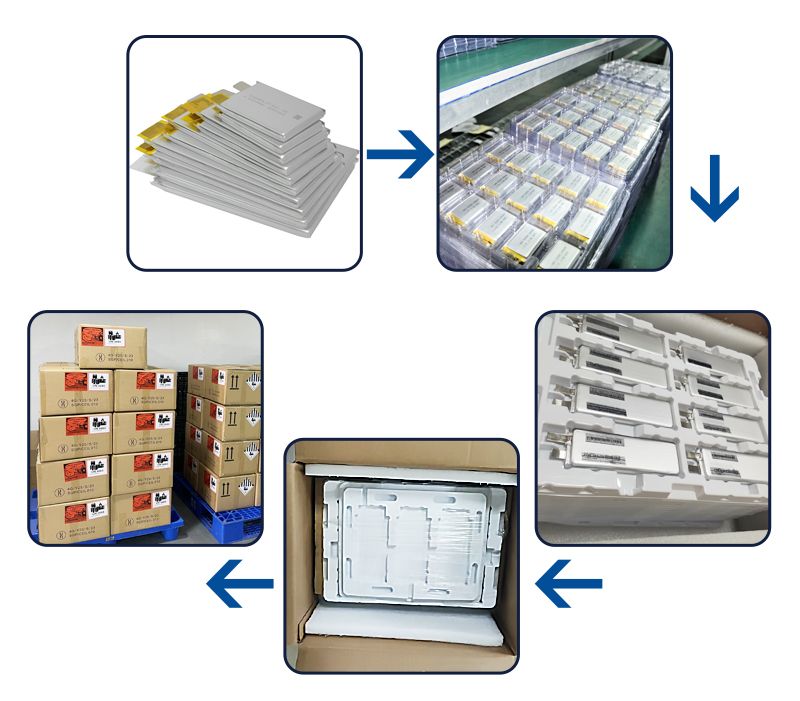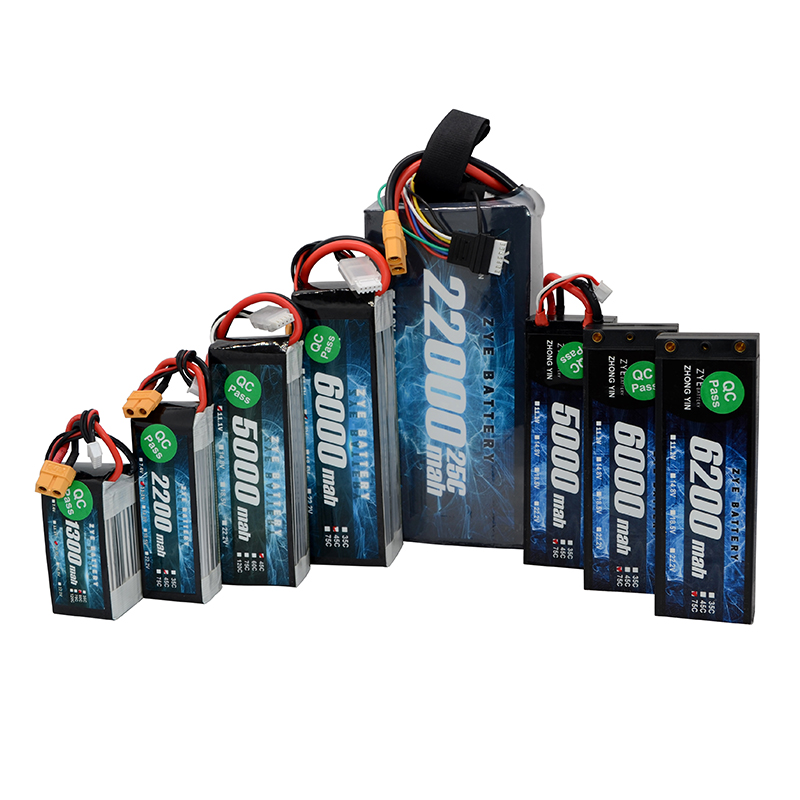Can you leave a lipo battery charging overnight?
2025-02-26
Lithium polymer (LiPo) batteries have revolutionized the world of portable electronics, offering high energy density and lightweight power solutions. However, these powerful batteries require careful handling and charging practices to ensure safety and longevity. One common question that arises among LiPo battery users is whether it's safe to leave these batteries charging overnight. In this comprehensive guide, we'll explore the dos and don'ts of charging 6s lipo battery and debunk some common myths surrounding overnight charging.
Is it Safe to Charge Your 6s Lipo Battery Overnight?
The short answer is no, it is not recommended to leave your 6s lipo battery charging overnight. LiPo batteries require constant supervision during the charging process due to their potential fire hazard if not handled correctly. Here's why overnight charging is dangerous:
Overcharging Risk: One of the primary concerns with charging LiPo batteries is the risk of overcharging. If a battery is overcharged, it can become unstable, leading to dangerous conditions such as swelling, overheating, or even combustion. Overcharging occurs when the battery exceeds its recommended voltage, which can happen if the charging process continues unchecked.
Lack of Monitoring: Charging overnight means that you will be asleep and unable to monitor the battery’s status. LiPo batteries require close supervision, especially in the final stages of charging. If the battery begins to swell, overheat, or show other signs of distress, it could become a fire hazard, and having no one to notice these changes increases the risk.
Charger Malfunction: Although charger malfunctions are rare, they can happen. A faulty charger could cause overcharging or other issues that compromise the safety of the battery. If you are not present to notice a malfunction, the battery might be damaged or, in extreme cases, cause a fire.
Environmental Factors: The room temperature can fluctuate, or unexpected events like power surges can impact the charging process. These factors could lead to improper charging, resulting in the battery becoming unstable.
Instead of overnight charging, it's crucial to follow safe charging practices:
Use a Balance Charger: Always use a balance charger designed for 6s LiPo batteries. This ensures each cell is charged evenly, which is vital for maintaining the battery's health and performance.
Charge in a Safe Location: Never charge a LiPo battery in an area with combustible materials. Ideally, charge the battery in a fireproof container or a LiPo safe bag on a non-flammable surface.
Monitor the Process: Stay alert and monitor the battery throughout the entire charging cycle. Never leave it unattended for long periods, especially if you plan to charge it to full capacity.
Follow Manufacturer Guidelines: Each LiPo battery comes with specific charging recommendations, including current and voltage limits. Always adhere to these guidelines to minimize risks and prolong the lifespan of your battery.
How to Maximize the Lifespan of Your 6s Lipo Battery
Proper care and charging habits can significantly extend the life of your 6s lipo battery. Here are some tips to help you get the most out of your battery:
1. Avoid Deep Discharges: Try not to discharge your battery below 20% of its capacity. Deep discharges can damage the cells and reduce overall lifespan.
2. Store at Proper Voltage: When not in use for extended periods, store your battery at around 3.8V per cell (about 50% charge).
3. Mind the Temperature: LiPo batteries perform best and last longer when used and stored at room temperature (20-25°C or 68-77°F).
4. Use the Right C-Rate: Charge and discharge your battery at the appropriate C-rate as specified by the manufacturer to prevent stress on the cells.
5. Regular Maintenance: Perform periodic visual inspections for any signs of damage or swelling.
6. Balance Charging: Always use balance charging to ensure all cells in your 6s lipo battery are at the same voltage level.
By following these practices, you can significantly extend the cycle life of your battery, potentially reaching 300-500 charge cycles or more.

Common Myths About Charging Lipo Batteries Overnight
There are several misconceptions about charging LiPo batteries that can lead to unsafe practices. Let's debunk some of these myths:
1. Myth: Modern chargers make overnight charging safe.
Truth: While modern chargers have safety features, they are not infallible. Always supervise charging.
2. Myth: It's okay to charge LiPos overnight if they're in a fireproof bag.
Truth: Fireproof bags offer some protection but don't eliminate all risks. They're not a substitute for proper supervision.
3. Myth: Charging to 100% extends battery life.
Truth: Consistently charging to 100% can actually reduce battery lifespan. Aim for 80-90% for everyday use.
4. Myth: Fast charging is always harmful.
Truth: While slower charging is generally better, many high-quality 6s lipo batteries can handle faster charging rates safely when specified by the manufacturer.
5. Myth: You should fully discharge LiPos before recharging.
Truth: Fully discharging LiPos can damage them. It's better to recharge when they reach about 30-40% capacity.
Understanding these myths can help you make informed decisions about battery care and safety. Always prioritize safety over convenience when it comes to LiPo battery charging.
In conclusion, while it may be tempting to leave your 6s lipo battery charging overnight for convenience, the risks far outweigh the benefits. By following proper charging procedures and care guidelines, you can ensure the safety of your surroundings and maximize the lifespan of your battery. Remember, a few extra minutes of attention during charging can save you from potential hazards and extend the life of your valuable battery investment.
If you have any questions about LiPo battery safety or are looking for high-quality 6s lipo battery for your projects, don't hesitate to reach out to our expert team at ZYE. We're here to help you power your innovations safely and efficiently. For more information or to inquire about our products, please contact us at cathy@zyepower.com. Our team of battery experts is ready to assist you with all your LiPo battery needs and ensure you get the most out of your power solutions.
References
1. Johnson, S. (2022). "The Complete Guide to LiPo Battery Safety and Charging Practices." Journal of Portable Power Technologies, 15(3), 78-92.
2. Smith, A., & Brown, R. (2021). "Maximizing Lifespan of High-Capacity Lithium Polymer Batteries." International Conference on Battery Management Systems, 112-125.
3. Lee, H. (2023). "Debunking Common Myths in LiPo Battery Usage and Charging." Advanced Energy Storage Solutions, 8(2), 201-215.
4. Zhang, Y., et al. (2022). "Safety Considerations for Overnight Charging of Lithium Polymer Batteries." Journal of Energy Safety, 29(4), 340-355.
5. Williams, T. (2023). "Best Practices for 6S LiPo Battery Maintenance and Storage." Drone Technology Review, 7(1), 45-58.
























































